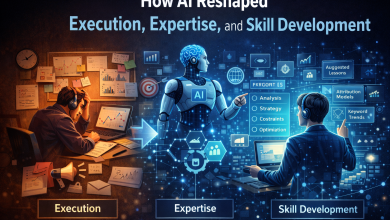
In an era where businesses increasingly rely on AI for critical decision-making, it is imperative that they can fully rely on the accuracy of this technology in guiding their conclusions. While some AI is prone to hallucinating in order to present information, this is simply unacceptable for certain high-stakes industries.
In the medical field, where errors in judgement and data can lead to severe physical consequences, AI hallucinations have the potential to negatively impact everything from patient records to the availability of life-saving medicine.
Similarly, the financial industry, a notoriously volatile and fluctuating sector, cannot afford the margin of error that comes with utilising hallucinatory AI, as even minor inaccuracies can trigger serious financial, regulatory, and reputational consequences.
Errors in AI-driven insights can lead to financial loss, regulatory scrutiny and damage to public trust. Sectors such as healthcare and finance must be able to rely on their AI systems to present them with data that is free of hallucination and therefore fully reliable. AI tools are needed that adapt to the unique needs of every industry, ensuring that they can make verifiable, risk-free decisions.
The challenge of hallucinations in medical AI
AI has had a significant impact on sectors across the globe. In healthcare, patients can now check their symptoms through an AI assistant, while doctors can rely on AI-powered technologies to transcribe their conversations with patients. AI has become a transformative force in healthcare, driving innovation and improving outcomes in areas ranging from diagnostics to operational efficiency.
Research has shown, however, that AI hallucination is a major pain point in the industry, with tasks demanding accurate extraction of factual details, such as chronological ordering and lab data interpretation, provoking error rates as high as nearly 25%. In a sector such as healthcare, where the margin for error is miniscule, relying on systems with this amount of hallucination is unacceptable and can lead to grave errors.
The medical world also depends on an intricate web of producers, distributors, medical professionals, and pharmacies to deliver the medicines and machinery needed to effectively treat patients. AI has proven to make these supply chains more efficient, providing information in a fraction of the time it would take a human workforce. However, relying on generic AI, which is prone to hallucinations, presents challenges that could have severe consequences, from a lack in vital medications to inaccurate inventory management, which can impact patient care.
The medical field cannot rely on conventional AI, which is prone to hallucination, but must instead be provided with technology that is deeply knowledgeable about its vocabulary and needs. Cognitive or Deterministic AI that is developed to adapt to the cause-and-effect relationships within medical data, and is founded in science, will give the industry the opportunity to make vital steps of its supply more efficient and reliable, greatly improving patient care.
Why finance demands reliable AI
Similarly, with AI rapidly becoming integral to the financial market, powering key technologies such as predictive trading algorithms, it has the potential to overhaul the industry, potentially replacing entire workforces and significantly improve fraud detection.
However, it is clear that more work needs to be done to deliver the financial industry AI that it can trust. A recent study has shown that of the major conventional AI tools, none scored more than 50% accuracy, on average, for simple tasks required of entry-level financial analysts. Additionally, conventional AI systems, when used for tasks such as credit assessments, have been known to act upon previous bias, further entrenching prejudices that have long been a point of criticism for the financial industry.
From discriminatory lending algorithms that perpetuate bias to an inability to accurately perform basic financial analysis, conventional AI models exhibit fundamental flaws that threaten financial decision-making integrity. The prevalence of AI hallucinations in simple financial tasks represents a threat to institutions that depend on accurate, verifiable data for risk assessment and regulatory compliance. The financial sector’s unique position as systemically important infrastructure demands AI models that are firmly grounded in truth, transparent in their reasoning and incapable of generating false information that could have a major impact on the broader economy.
What high-stakes sectors need from AI
This is where the next generation of AI must evolve, going from pattern recognition engines to cognitively capable systems that interpret, reason and adapt. For industries like finance and healthcare, where decisions must be rooted in verifiable truth, hallucination is not a tolerable side effect. It is a systemic risk.
AI models are needed that are engineered to grasp cause-and-effect, align with domain-specific knowledge and deliver answers that can be audited and trusted. Built with scientific rigour, they are designed not to speculate, but to support sound judgement.
For sectors that cannot afford ambiguity, this kind of AI is an operational necessity. As organisations evaluate their AI investments, the benchmark must shift from smart to scientifically accountable. Only then can AI fulfil its promise as a truly reliable partner in complex, high-stakes environments.




